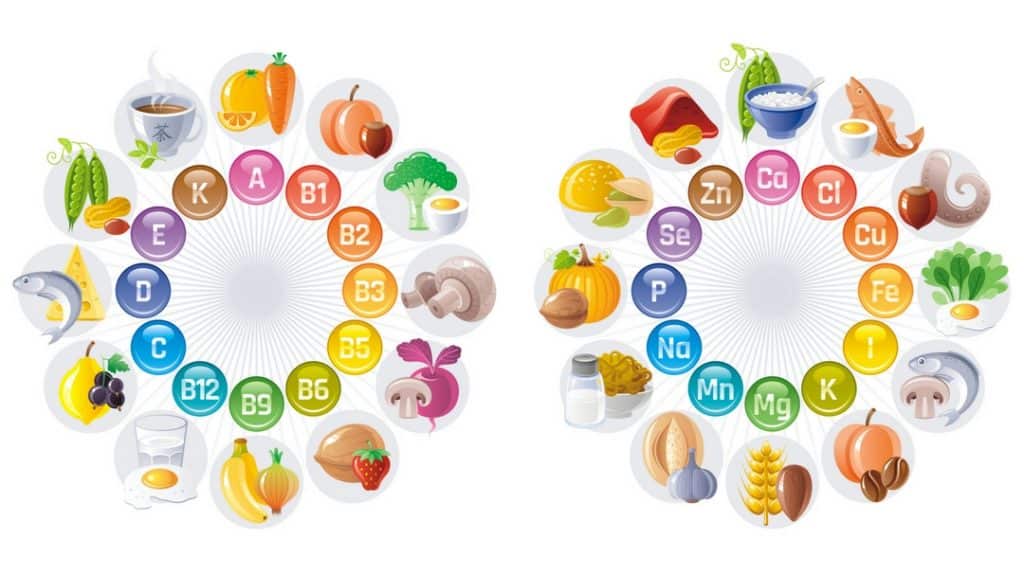Most of us in the West don’t get enough nutrients from our diet alone. This is one of the reasons many people choose to take vitamin supplements.
But which supplements are best? What vitamins do you need? These are just some of the important questions you should ask yourself before buying a vitamin supplement online. Avoiding simple mistakes when buying vitamins can make all the difference to your health.
Keep reading to find out the top 10 vitamin-buying mistakes that people make online.
1. Buying the Wrong Vitamins
There are many different vitamins and minerals that our bodies need for optimal health. Before buying vitamins online, you should first find out exactly what you need.
If you suffer from a chronic illness or have any health conditions, you should first consult with your healthcare provider before taking vitamins. Depending on your condition, you may benefit from specific nutrients. Alternatively, you may have a deficiency that needs to be remedied.
Some blood tests can detect vitamin/mineral deficiencies. For example, vitamin D is commonly deficient among those who live in cold climates or don’t get enough sun. A simple blood test can tell you if you’re deficient.

Vitamin B12 is commonly deficient among vegetarians and vegans. It’s only available through animal foods, so if you don’t eat meat, you may want to get your levels tested. B12 can be stored in the liver for years, so if you’re not deficient now, you may still become deficient.
If you really don’t know what you need, you can’t go wrong with a good quality, high-potency multivitamin. Multivitamins are designed to contain several key nutrients in their optimal ratios.
Alternatively, you could consult a nutritionist or dietician. They will analyze your diet and tell you what vitamins you may be lacking.
2. Neglecting Nutrient Antagonisms
There are certain nutrients that are antagonistic towards one another and are most common among the minerals. This means that an excess of certain minerals can cause a deficiency in others.
For example, zinc and copper are antagonists. You see, copper and zinc both compete for absorption in the intestines. So if you’re supplementing with high doses of zinc, this can cause a deficiency in copper and vice versa.
Calcium and iron are also antagonists. Calcium inhibits iron absorption. So if you’re taking iron supplements, you shouldn’t wash them down with a glass of milk!
It’s very important to understand antagonisms when supplementing with vitamins and minerals otherwise correcting one deficiency may result in another. Because of this, it may be wise to first consult with a nutritionist.
3. Failing to Consult a Nutritionist
Nutritionists are experts in food and health supplements, including vitamins. If you want to take vitamins for general health, why not get advice from a qualified nutritionist?

A nutritionist will be able to analyze your diet and tell you exactly what nutrients you need. They will also be able to recommend certain supplement brands and websites where you can buy them.
During a nutrition consultation, you’ll be asked about your medical history, state of wellbeing, and health goals. Once they know exactly what you want to achieve by taking vitamins, they can advise you accordingly.
4. Buying Cheap Vitamins
One of the biggest mistakes people make when buying vitamins online is choosing the cheap option. It may be tempting to buy cheap vitamins and save yourself some money, but it’s only going to hurt you in the long run.
Cheap vitamin supplements may have some or all of the following issues:
- Vitamin dose is too low
- Includes unwanted additives and/or contaminants
- Provides the vitamin in the incorrect form
- Missing key nutrients
Vitamins and minerals can come in multiple forms. It just so happens that many of the cheaper forms are harder for the body to absorb. If vitamins can’t be absorbed, they’re useless.
Buying cheap, poor quality vitamins is a waste of money. Rather, spend a bit extra to get the quality that you, and your body deserve.
5. Not Reading the Labels on Products
Although you’re shopping online, you should still read the product label of any supplements you plan on buying. If a picture of the label isn’t available, then discount that product and find another.
There are a few things to look for when inspecting vitamin labels. Firstly, you should look at the ingredients list to see exactly what nutrients the product contains. Multivitamins should contain a wide variety of beneficial nutrients in their optimal rations.

You should also check how much of each vitamin the product contains. It may say ‘high potency’ on the front, but that doesn’t mean it is. Always check doses to make sure you’re getting an adequate amount. Too little and the supplement won’t have any effect.
6. Choosing Unknown Brands
When it comes to something important like health supplements, be sure to only buy from a well-established brand with a good reputation. If you find a brand you like, check their website, and reviews.
If their reviews are overwhelmingly positive and the company has been around a long time, they most likely produce quality supplements. High-quality vitamin suppliers conduct regular quality checks on their products. This ensures they are pure and free from contaminants.
Do some research to find high-quality vitamin suppliers online. If you’re looking for hair vitamins, why not use Sugar Bear Hair?
7. Buying Vitamins With Unhealthy Additives
Did you know that health supplements often contain additives? These include:
- Colorants
- Sweeteners
- Bulking agents
- Stabilizers
- Binders
- Emulsifiers
Buying vitamins without any additives is ideal as many additives aren’t good for your long-term health. Natural sweeteners, such as xylitol and stevia are better than artificial sweeteners but may cause digestive upset in some people.
Some cheaper vitamin products are loaded up with additives to make it look like you’re getting more than you actually are. Most of the additives are useless as they are not needed by the body.
When looking for vitamins to buy online, inspect the product label to see what it contains. If you’re not sure what to look for, ask your nutritionist.
8. Not Checking the Dose
There are many different types of vitamins and each needs to be taken in different amounts. Depending on how deficient you are in a specific vitamin, you may need to take a higher dose to make up for it.
If the product you’re using only contains 2mg of a vitamin when you need 10mg then you’re better off finding a different one.

If you’re deficient in vitamin D for example, the average amount in most supplements won’t be enough to boost your levels. In this case, you may have to take a higher dose than indicated on the label or find a supplement that provides a higher potency. Either way, you should consult with your doctor first.
Furthermore, consuming vitamins in too little amounts is a waste of money and may not provide any health benefits. So, before you part with your cash, find out what dose you need and choose supplements accordingly.
9. Forgetting to Check Customer Reviews
Checking customer reviews is one of the most important things to do before making an online purchase. Positive reviews indicate that the product is effective and high-quality.
Looking through online customer reviews will also help you to avoid any dodgy companies trying to profit off poor quality products. These kinds of scams rely on people not doing their research.
10. Buying Vitamins That Are Too Weak

If you have a specific deficiency in one or more vitamins, taking a multivitamin or a health supplement containing multiple nutrients may not be adequate. Instead, you may want to consider taking the vitamin on its own alongside a high-quality multivitamin.
This way you can be sure you’re getting the right amount while reducing any antagonistic effects.
Health supplement companies will sometimes overload their products with multiple nutrients so that they can be marketed to a wider audience. However, supplements with multiple nutrients, often provide each nutrient is suboptimal amounts.
Many people think that a product with more vitamins is better than one with less but this isn’t always true. While consuming a variety of different nutrients is important, the amount that you consume is too.
Sometimes it’s better to take several, separate vitamin supplements instead of trying to get everything you need from one product.
Avoiding These Vitamin-Buying Mistakes Will Improve Your Health
When supplementing with vitamins it’s important to know what you need and how much to take. Do research on well-established brands so you can buy a quality product. If you’re unsure, you can always consult a nutritionist.
Taking care of your health is one of the most important things you can do in life. By avoiding these common vitamin-buying mistakes, you can improve your health and nutrition.
Remember – inspect the product label, check for unhealthy additives, and read the customer reviews before you buy. If you found this post helpful, then check out more of our blog.

David Johnson is a versatile content writer known for his ability to breathe life into words and create engaging narratives on diverse subjects. With a passion for effective storytelling and a keen eye for detail, David crafts content that resonates with readers and sparks their curiosity. He is dedicated to delivering high-quality, informative, and enjoyable content, making him a respected voice in the digital landscape. Beyond the keyboard, David enjoys exploring the outdoors, immersing himself in literature, and finding inspiration in everyday experiences.






Loading…